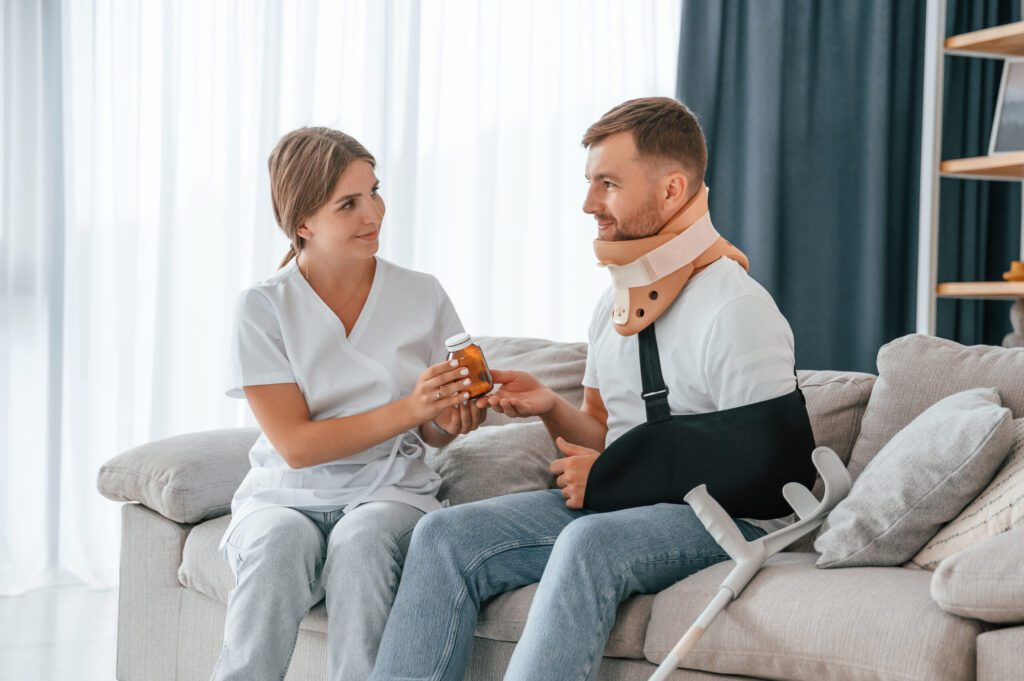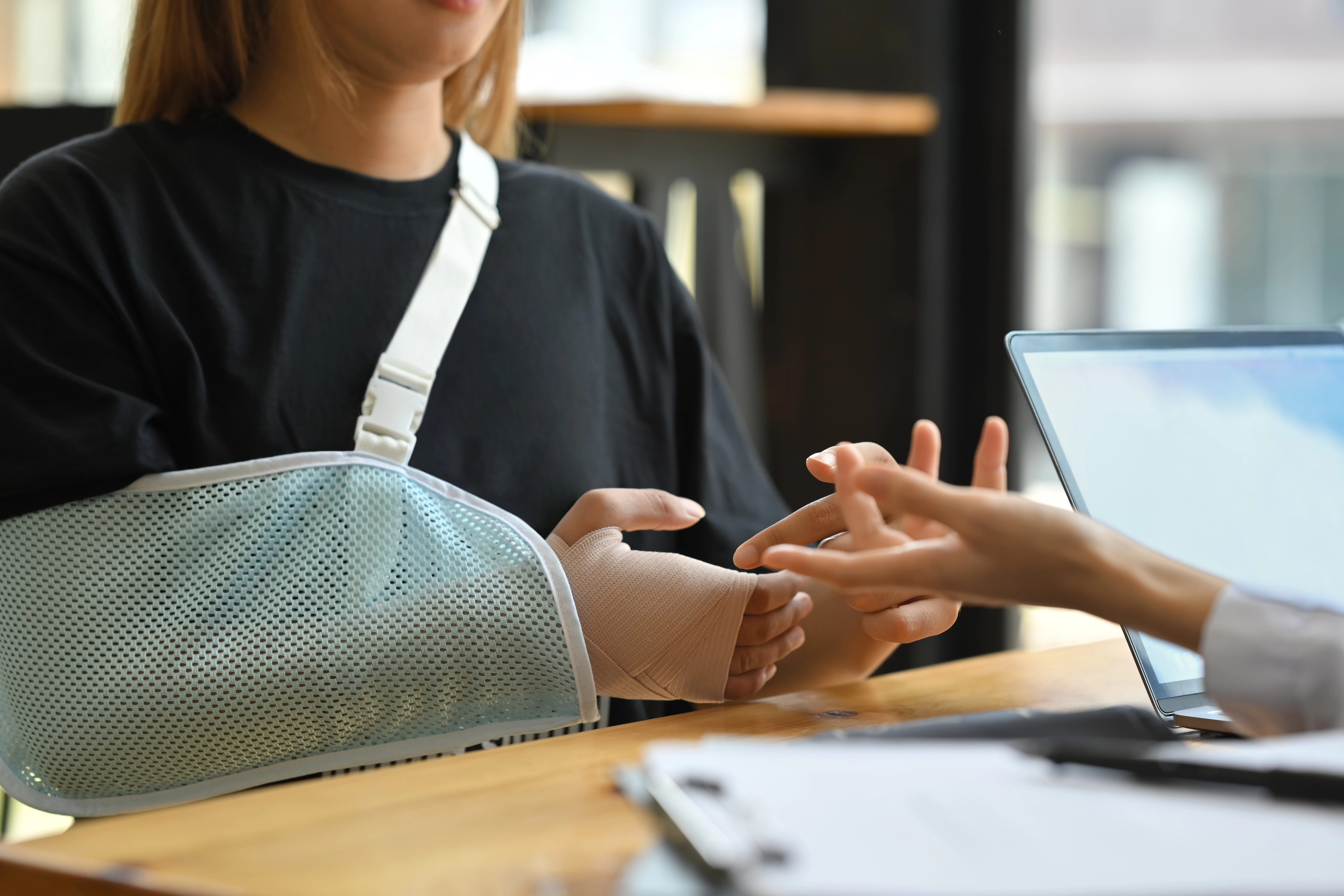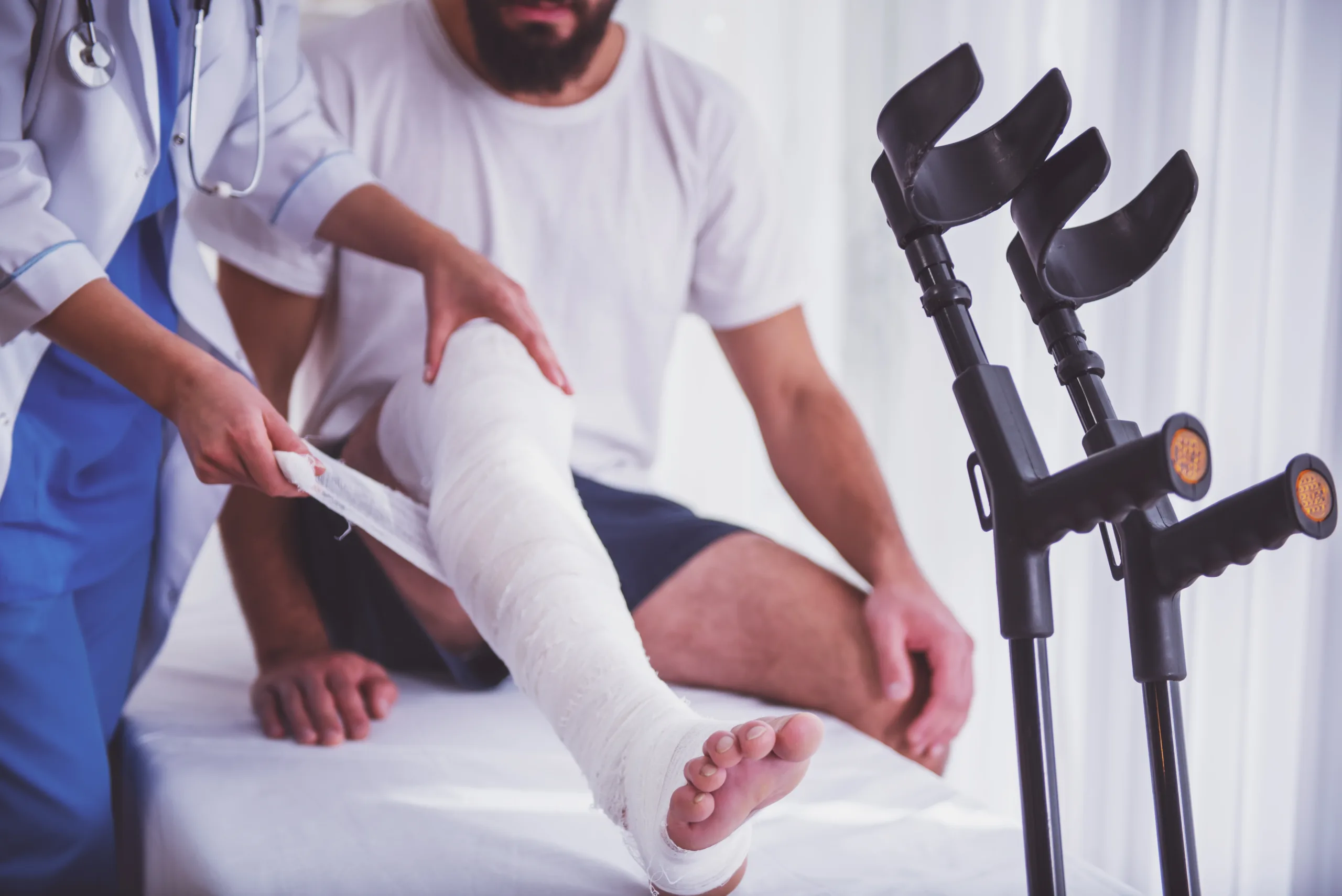If you’ve been hurt in Louisiana, there are compensation types you need to know about.
If you’ve been injured in an accident, understanding the compensation types for personal injury in Louisiana you may be entitled to can feel overwhelming. Whether it’s a car crash, slip and fall, or any other incident caused by someone else’s negligence, knowing your rights is essential to securing the financial recovery you deserve.
Louisiana personal injury law allows for different types of compensation, or “damages,” depending on the specifics of your case. This guide breaks down the types of compensation available to help in the claims process and get the full recovery you’re entitled to.
Quick Summary:
- Personal injury damages refer to the monetary compensation awarded to individuals who have suffered harm due to another party’s negligence or intentional actions. These damages aim to restore victims as much as possible to their pre-injury state.
- Louisiana law recognizes different types of compensation for personal injury cases, classified mainly into economic and non-economic damages. Economic damages cover quantifiable losses such as medical expenses, lost wages, and property damage. Non-economic damages address more subjective losses, such as pain and suffering, emotional distress, and loss of enjoyment of life.
- Several key factors affect the potential compensation a victim may receive. These include the severity of the injury, medical treatment costs, and lost wages. The degree of fault or negligence is particularly important, as Louisiana follows a comparative fault rule. Documentation and evidence also play an essential role in establishing the case’s validity.
- Victims can take proactive steps to maximize their compensation, starting with seeking immediate medical attention to establish a treatment timeline. Thorough documentation of all related expenses, injuries, and emotional impacts is essential for a strong case. It is also important not to settle too quickly and to accurately calculate all potential damages, ensuring that economic and non-economic losses are considered.
What Are Personal Injury Damages?
Personal injury damages refer to the monetary compensation awarded to an individual who has suffered physical, emotional, or financial harm due to another party’s negligence or intentional actions. The purpose of these damages is to make the injured person “whole” again, as much as possible, to the position they were in before the injury occurred.
What are the Compensation Types For Personal Injury in Louisiana?
In Louisiana personal injury cases, victims may be entitled to different types of compensation, or “damages,” depending on the nature and severity of their injuries. These damages fall into three primary categories: economic, non-economic, and, in some rare instances, punitive damages. Each serves a distinct purpose in addressing the various impacts an injury can have on a victim’s life.
Economic Damages
Economic damages compensate the victim for measurable financial losses incurred due to the injury. These are typically the most straightforward to calculate and include:
- Medical Expenses: Covers costs related to medical treatment, including hospital bills, surgeries, medications, physical therapy, and any future medical care required due to the injury.
- Lost Wages: Reimbursement for income lost during the recovery period, including future lost wages, if the injury affects the victim’s ability to return to work or reduces their earning capacity.
- Property Damage: If personal property (such as a vehicle) was damaged in the accident, the costs of repair or replacement are included under economic damages.
Non-Economic Damages
Non-economic damages are more subjective and compensate for losses that don’t have a direct financial value but significantly impact the victim’s quality of life. These include:
- Pain and Suffering: Compensation for the physical pain, discomfort, and suffering endured due to the injury.
- Emotional Distress: Covers the psychological impact of the injury, such as anxiety, depression, trauma, and other mental health challenges caused by the incident.
- Loss of Enjoyment of Life: If the injury prevents the victim from engaging in activities or hobbies they once enjoyed, they may be compensated for this loss.
- Loss of Consortium: This compensates the spouse or family members for the loss of companionship, affection, or intimacy due to the injury’s impact on their relationship.
Punitive Damages
Punitive damages are rare in Louisiana personal injury cases and are awarded only in situations where the defendant’s conduct was particularly reckless, malicious, or intentionally harmful. These damages are meant to punish the wrongdoer and deter similar behavior in the future rather than compensate the victim directly.
Understanding the types of compensation available in Louisiana personal injury cases is essential for ensuring victims receive a fair recovery for their losses.
What Factors Affect Potential Compensation?
Several factors influence the amount of compensation a victim can receive in a Louisiana personal injury case. These factors help determine the extent of both economic and non-economic damages awarded and can significantly impact the overall value of a personal injury claim. Understanding these factors can help victims during the process and set realistic expectations for their recovery.
-
Severity of Injury
The more severe the injury, the higher the compensation is likely to be. Serious injuries, such as those involving permanent disability, chronic pain, or long-term medical treatment, typically result in larger settlements or awards. Minor injuries, while still compensable, generally lead to lower payouts because the financial and emotional impacts are less significant.
-
Medical Treatment and Expenses
Compensation is closely tied to the cost of medical treatment. This includes not only past medical bills but also the projected cost of future care. Extensive or ongoing medical treatments (such as surgeries, rehabilitation, or long-term therapy) will increase the amount of compensation. Victims who have detailed documentation of their medical expenses often receive higher payouts.
-
Lost Wages and Earning Capacity
If the injury has caused the victim to miss work, compensation may include lost wages for the period of recovery. In cases where the injury affects the person’s ability to work in the future (i.e., a reduced ability to perform their job or pursue a similar career), the victim may be compensated for diminished earning capacity.
-
Degree of Fault or Negligence
Louisiana follows a comparative fault rule, which means compensation can be reduced based on the victim’s share of fault in causing the accident. If the victim is found partially responsible for their injuries, their compensation will be reduced by the percentage of their fault. For example, if a victim is 20% at fault, their compensation would be reduced by 20%.
-
Available Insurance Coverage
The amount of compensation may also depend on the insurance coverage of the at-fault party. If the defendant has limited or no insurance, it may affect the amount of money the victim can recover. Victims may need to rely on their insurance coverage, such as uninsured/underinsured motorist coverage, in some cases.
-
Evidence and Documentation
Substantial evidence can significantly impact compensation. Detailed medical records, photos of the injury or accident scene, police reports, witness statements, and expert testimony can all help build a stronger case. The more well-documented the case, the higher the likelihood of a favorable outcome.
-
Emotional and Psychological Impact
Emotional distress, anxiety, depression, or trauma caused by the injury are factored into non-economic damages. The more significant the psychological and emotional impact on the victim’s life, the higher the compensation for non-economic damages like emotional distress or loss of enjoyment of life.
-
Length of Recovery
A longer recovery period often means a higher compensation amount. Victims who require extended medical treatment or have long-lasting physical limitations due to their injury are more likely to receive higher payouts than those who recover quickly.
The compensation a victim receives in a personal injury case is influenced by multiple factors. Understanding these factors is key to maximizing recovery and ensuring a fair settlement or court award.
How Can I Maximize My Compensation?
Maximizing your compensation in a Louisiana personal injury case requires careful preparation, attention to detail, and strategic decision-making. From gathering solid evidence to working with experienced legal representation, taking the right steps can significantly increase your chances of receiving fair and full compensation for your losses. Here are key ways to maximize your compensation:
- Seek Immediate Medical Attention: One of the most important steps is to seek medical treatment immediately after the injury, even if you don’t feel immediate pain. Delaying medical care can harm your case, as it may be used to argue that your injuries weren’t serious or weren’t caused by the accident.
- Document Everything: Thorough documentation is critical in personal injury cases. Keep a detailed record of everything related to your injury, including:
- Medical bills, records, and prescriptions.
- Photos of your injuries and the accident scene.
- Statements from witnesses.
- A journal detailing your pain, emotional distress, and how the injury has affected your daily life.
- Don’t Settle Too Quickly: Insurance companies often push for quick settlements, hoping victims will accept less than they deserve in exchange for a fast payout. It’s important not to rush into a settlement before fully understanding the extent of your injuries and their long-term impact.
- Calculate All Damages Accurately: Compensation should account for economic and non-economic damages. Make sure to include every type that applies.
- Establish the Other Party’s Fault: In Louisiana, your compensation can be reduced if you are found partially at fault for the accident. Collect all evidence from the accident, including police reports, witness statements, and any available surveillance footage. The more clearly you can demonstrate the other party’s fault, the stronger your case for total compensation.
- Work with a Monroe Personal Injury Attorney: Having an experienced personal injury attorney is one of the most effective ways to maximize compensation. You may unknowingly accept a lower settlement than you deserve without proper legal guidance.
- Be Mindful of the Statute of Limitations: In Louisiana, personal injury claims must be filed within 2 years of the date of the accident, per the state’s statute of limitations. Missing this deadline can prevent you from recovering any compensation.
- Avoid Social Media and Public Statements: Be cautious about what you post on social media or say in public after the accident. Insurance adjusters and defense attorneys may scrutinize your social media profiles for any statements or images that contradict your claims about the severity of your injuries.
These steps can protect your rights and achieve the best possible outcome in your personal injury case.
Call Us Today to Understand the Compensation Types for Personal Injury in Louisiana
Knowing the types of compensation available in Louisiana personal injury cases is essential for ensuring you receive the full recovery you deserve after an accident. Whether you’re dealing with medical bills, lost wages, or the emotional toll of an injury, these damages play a key role in helping you rebuild your life.
Seeking guidance from our Monroe personal injury attorney at E. Orum Young Law Personal Injury Attorney can further protect your rights and ensure you are not shortchanged in settlement negotiations. Whether you’re injured in a car crash or truck wreck, we can help you secure maximum compensation.
In the aftermath of an injury, taking proactive steps to safeguard your financial future and achieve a fair outcome is essential. Contact us today for a free case review.





